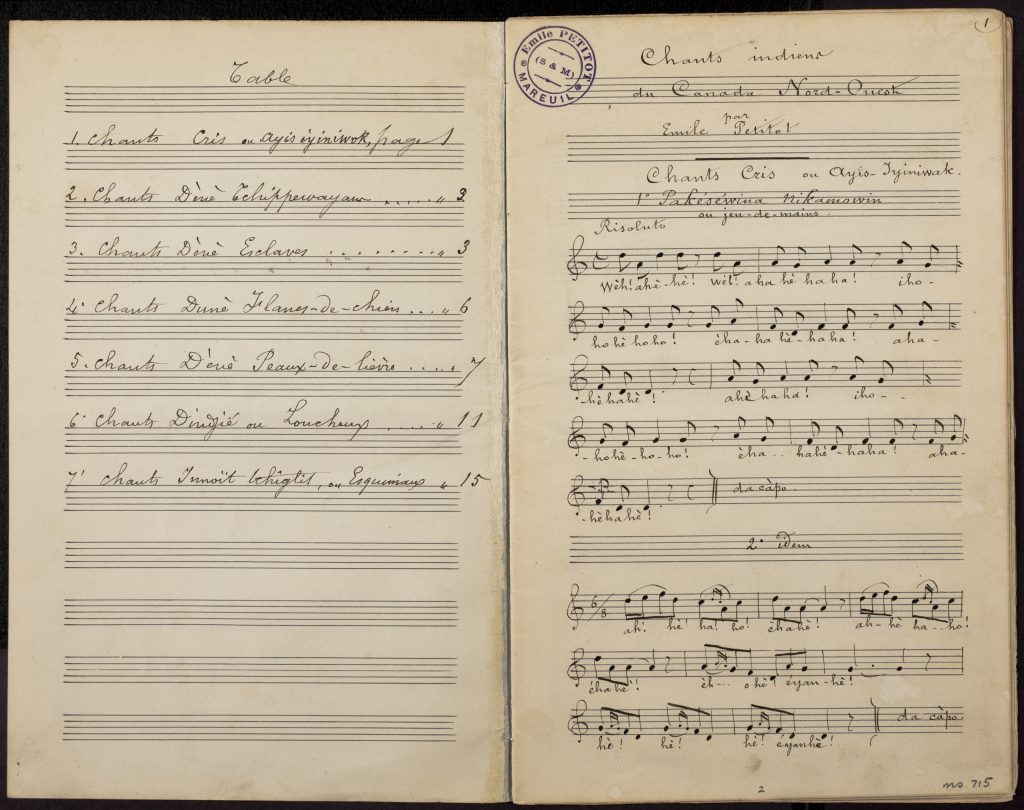During his decades of missionary work in the Northwest Territories of Canada, Father Emile Petitot wrote much on his experiences with the native peoples. One document, published seven years following his forced return to France as a result of poor health and occasional bouts of insanity, was a collection of songs Petitot had heard the natives singing for various dances, games, and war ceremonies. With transcribed melodies and his best attempts of words, Petitot recorded 46 different songs that are now permanently a part of history.

As pictured above, the manuscript shows a rough approximation of what Petitot heard. While we now understand that the concepts of 12 tone temperament and a standard key signature are really only well suited for traditionally “western” music styles, Petitot’s transcription still gets enough information about the music itself to get the ideas across. Notably, much of the context behind the history and purpose of the songs is lacking, but the European attitude towards the Native Americans at the time as people who had fallen from God’s grace and needed saving likely influenced him to simply ignore the context and keep trying to convert all that he could.
While his most notable accomplishments were not music related, being a missionary and cartographer before a musicologist, his recording and publication of Native music to a European audience was another important step in the understanding of Native culture, albiet from a controversial source. From temporary excommunication, getting forcibly admitted to an asylum, attempted murder of a colleague, and his general lack of respect toward the Dele and Inuit peoples, Petitot is the farthest one could be from a model musicologist. However, his work continued to set the stage for future ethnologists and musicologists to research the music of Native Americans, giving greater context to the work of Frances Densmore and others in the 20th century.
Works Cited
Moir, John S. “Petitot, Émile (Émile-Fortuné) (Émile-Fortuné-Stanislas-Joseph).” Dictionary of Canadian Biography, 1998, www.biographi.ca/en/bio.php?BioId=41771.
Petitot, Emile. Chants indiens du Canada Nord-Ouest [manuscript] : recueillis, classés et notés par Emile Petitot, prêtre missionnaire au Mackenzie, de 1862-1882, 1889. 1862-1882], 1862.

Nathan, this is terrific. Indeed, musicologists should ideally not be disrespectful or murderous. But you are right to point out that Petitot’s work is endemic of the period he lived in. The page of the document you show here is simultaneously remarkable and completely typical, reflective of a selective “appreciation” for Indigenous culture and musical practice. I would be interested to know if there are any extant recordings of this music, in order to gauge just how (in)accurate his transcriptions are.
Excellent work.